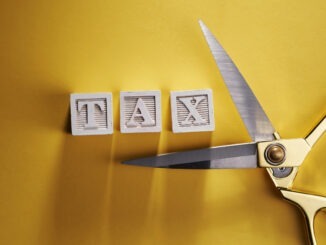
As reported by The Independent, small businesses and industry groups express appreciation for budgetary efforts to stimulate growth and ease tax obligations, yet many deem the measures insufficient, emphasising the need for more substantial support to navigate economic challenges
Billed by the Treasury as the “year of the SME”, Chancellor Jeremy Hunt announced plans to support small firms by increasing the VAT registration threshold from £85,000 to £90,000 this April to “cut their taxes and help them grow”.
He also unveiled proposals to extend full expensing to assets for leasing – a corporation tax relief specifically focused on companies investing in plant and machinery.
The Treasury said this would be done “when fiscal conditions allow” and that it would publish draft legislation shortly.
Rain Newton-Smith, chief executive of the CBI business group, praised the move to extend full capital expensing to leased and rented assets for helping “increase business investment”.
She added that the 2p cut to National Insurance Contributions (NICs) and the reduction in high marginal tax rates for working parents would “incentivise work at a time when access to labour represents a major obstacle to business growth”.
But Richard Godmon, tax partner at Menzies, said: “No such cut in the NI rate was announced for employer contributions, for example – a measure that would have been welcomed by struggling businesses in the retail and hospitality sectors especially.”
He added: “This Budget was largely a case of too little, too late for most businesses.
“It’s disappointing to see the Chancellor largely neglect British businesses with today’s measures.”
Mr Hunt also faced accusations from the SME sector that the £5,000 increase in the VAT threshold was not enough.
Daniele Paduano, 35, who owns the Angel & Crown pub in Bethnal Green and Kotch, a pizza restaurant in Maryland, Stratford, said he was disappointed about the “meagre” £5,000 increase.
He said: “£90,000 works out to £1,700-a-week – no business can survive while paying 20% VAT on that.
“As a hospitality business we were hoping for a reduction in VAT from 20% to 10% but clearly this is too much to wish for. It’s a big shame as reducing the VAT on business would certainly create more jobs.”
Martin Blanche, head of indirect tax at PwC, said while many small firms will no longer need to register for and charge VAT as a result of the threshold hike, the “overall impact will be relatively modest”.
“While this is good news for some, the ‘cliff edge’ effect of the VAT registration threshold still remains for many of the small businesses who may be looking for further support,” he added.
There were also concerns that scrapping the non-dom status for wealthy foreigners may impact firms’ ability to retain talent.
Mr Godmon said: “Firms, especially in the City, are already facing intense competition in the race for global top talent, and the non-dom tax status has thus far been a powerful incentive to work in the UK.
“The Chancellor said himself in 2022 that these individuals could just as easily choose to live in other countries and contribute to their businesses and economies – and now they may well do so.”
Federation of Small Businesses policy chairwoman Tina McKenzie said it was a welcome decision to extend the Recovery Loan Scheme until the end of March 26.
The scheme – which offers a 70% government guarantee on loans to SMEs of up to £2 million in Great Britain and £1 million in Northern Ireland – will also be renamed as the Growth Guarantee Scheme.



Be the first to comment